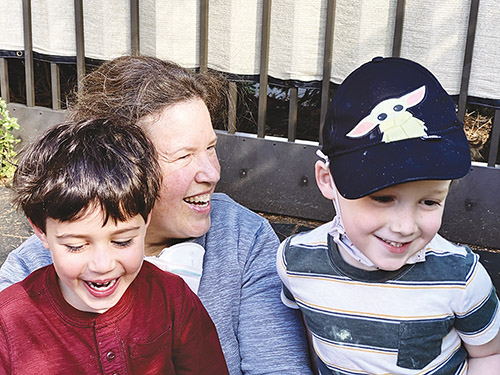

October is ADHD Awareness Month, Learning Disabilities Awareness Month and Selective Mutism Awareness Month. These developmental disorders, along with high functioning autism, are the ones most frequently seen in our students at The Springboard School. Our multidisciplinary program is for bright children, ages 4-6 years old, with developmental challenges. We offer a comprehensive social skills curriculum and language-based classroom as well as speech therapy, occupational therapy and parent counseling.
This month I am reflecting on the hundreds of children whom I have been privileged to work with over the past 44 years. Two ideas emerge. The first is the importance of early intervention, which offers help to children when their brains are the most plastic and the possibility of long-term change is most likely. The second is the importance of engaging parents in the treatment process, which solidifies and expands their children’s development gains.
Children with ADHD have trouble focusing and attending—skills that are crucial to success in elementary school. Some also have difficulty with self-regulation. Children who cannot sit still in school and who may be disruptive or aggressive, cannot be maintained in typical classrooms. Without specialized help, many very intelligent children get lost in school and never reach their full potential. We have created a comprehensive behavioral curriculum to address these issues through direct teaching.
Learning disabilities are traditionally diagnosed in the first or second grade. But teachers working with preschool children can pick up potential problems earlier and address them. In our program we work on basic pre-reading skills. We help the children develop narrative skills in their play and we teach them to verbally narrate their personal stories. These skills promote future literacy. We incorporate the written word, numbers, writing and identifying letters in many of our daily activities. In these ways, we build a foundation for academic learning that some children don’t pick up their own.
We have worked with many children with selective mutism, an anxiety disorder that is sometimes genetically based. These children often have trouble regulating their emotions and behaviors. At home they may talk too much and have frequent outbursts. Outside, they may withhold language altogether and they are often constricted in their affect and even their physical movements.
This disorder has a profound effect on a child’s development and adds a lot of stress to the family. Our curriculum makes use of a consistent therapeutic approach, and includes many strategies for lowering anxieties. We have offered individual psychotherapy and we have always included parents in the treatment plan. Some of these children benefit from medication too. I am
very pleased that all of the children with selective mutism attending our program have recovered.
Our curriculum is comprehensive, focusing on socialization, communication and self-regulation, but addressing many other aspects of our student’s growth and development. I firmly believe however, that it is our parent collaboration that makes each child’s progress so dramatic and long-lasting. We provide parent counseling, frequent communication with staff, and strategies they can use for years to come.
I am full of admiration for the amazing and devoted parents who work so hard on behalf of their children. These October awareness months allow me to remember once again.
For more information, please visit www.thespringboardschool.org or contact Lois Mendelson, PhD, director of The Springboard School, at [email protected] or 917-692-8298.













